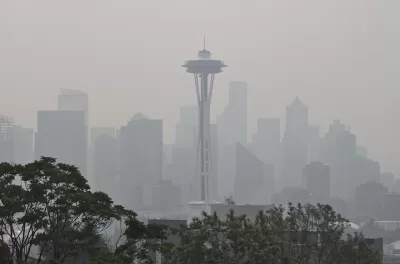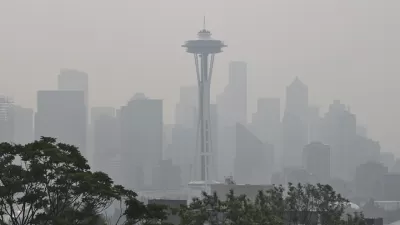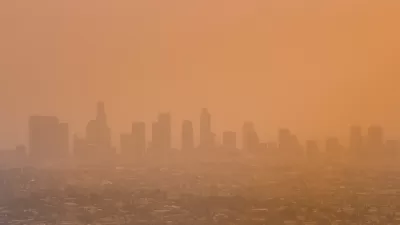Wildfires have caused the city’s air quality to plummet in recent years. The new shelters will give residents a break when the air is not fit to breathe.

Seattle plans to open public clean-air shelters later this month to give residents a reprieve from the air pollution that blankets the city during wildfires in the region, writes Halley Golden:
The pilot program will outfit five public buildings with high-tech filtration systems that screen out smoke and toxins. The buildings will also be equipped with detection systems to keep tabs on how clean the indoor and outdoor air is, and air doors at entrances to push dirty air away.
The selected sites are in areas where residents are less likely to have filtration systems in their homes. Seattle officials are anticipating more smoky days in the future, and the shelters will help protect the city’s most vulnerable residents. But as climate change threats and impacts grow, more facilities will likely be necessary.
"The majority of homes in the city—known for its mild weather—don’t have air conditioning. And lately, temperatures have been on the rise, while smoky days have become more frequent. That means the standard advice to keep windows and doors closed when there’s bad air outside is not always going to be feasible, given the heat," notes Golden.
FULL STORY: Urban 'Breathing Rooms' May Help Smoky Cities Survive Wildfire Season

Planetizen Federal Action Tracker
A weekly monitor of how Trump’s orders and actions are impacting planners and planning in America.

Maui's Vacation Rental Debate Turns Ugly
Verbal attacks, misinformation campaigns and fistfights plague a high-stakes debate to convert thousands of vacation rentals into long-term housing.

Restaurant Patios Were a Pandemic Win — Why Were They so Hard to Keep?
Social distancing requirements and changes in travel patterns prompted cities to pilot new uses for street and sidewalk space. Then it got complicated.

In California Battle of Housing vs. Environment, Housing Just Won
A new state law significantly limits the power of CEQA, an environmental review law that served as a powerful tool for blocking new development.

Boulder Eliminates Parking Minimums Citywide
Officials estimate the cost of building a single underground parking space at up to $100,000.

Orange County, Florida Adopts Largest US “Sprawl Repair” Code
The ‘Orange Code’ seeks to rectify decades of sprawl-inducing, car-oriented development.
Urban Design for Planners 1: Software Tools
This six-course series explores essential urban design concepts using open source software and equips planners with the tools they need to participate fully in the urban design process.
Planning for Universal Design
Learn the tools for implementing Universal Design in planning regulations.
Heyer Gruel & Associates PA
JM Goldson LLC
Custer County Colorado
City of Camden Redevelopment Agency
City of Astoria
Transportation Research & Education Center (TREC) at Portland State University
Jefferson Parish Government
Camden Redevelopment Agency
City of Claremont





























